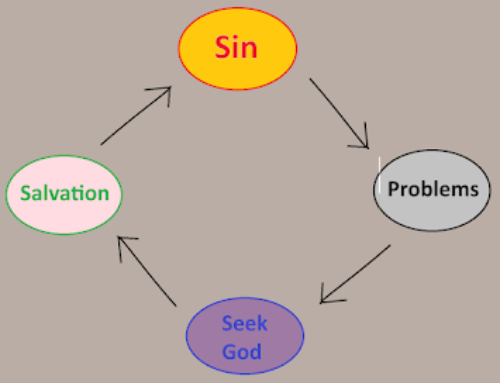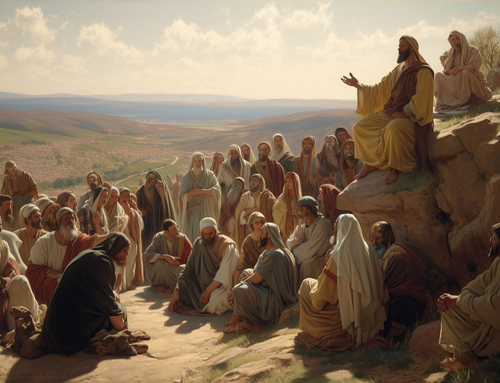Almost every entry of this blog has mentioned or referenced Jesus in some way. It is, or at least should be, impossible to write a Christian blog without regularly writing about Jesus. That said, Jesus is such a big and important figure that it’s perfectly possible to talk about him constantly and still miss some important factors about him. It’s easy for people to hear about him but not completely understand who or what he is.
In our faith, Jesus wasn’t just a man or prophet. We often refer to him as the Son of God, but even that leaves room for confusion. We don’t simply believe he was a child of God in the same way that we are. He was actually God in the flesh.
In the beginning was the Word, and the Word was with God, and the Word was God. He was with God in the beginning. Through him all things were made; without him nothing was made that has been made. In him was life, and that life was the light of all mankind. The light shines in the darkness, and the darkness has not overcome it. – John 1:1-5
What exactly does it mean when the Bible refers to Jesus as God’s Word? Whenever we think about God, we have to put our human notions to the side. Our words have power, but on a completely different scale than God’s. After all, he spoke the entire universe into existence. Jesus isn’t just the audible proclamation of God. That’s not what the Bible is telling us. Jesus is the manifestation of God’s will and intent for this physical realm. God used Jesus to create our universe and everything in it, and the universe and everything in it were created for Jesus.
God existed before the universe, and as such, exists outside of the universe. Interacting with God, the Father, is no simple task.
Then Moses said, “Now show me your glory.”
And the Lord said, “I will cause all my goodness to pass in front of you, and I will proclaim my name, the Lord, in your presence. I will have mercy on whom I will have mercy, and I will have compassion on whom I will have compassion. But,” he said, “you cannot see my face, for no one may see me and live.” – Exodus 33:19-20
The Lord said, “Go out and stand on the mountain in the presence of the Lord, for the Lord is about to pass by.”
Then a great and powerful wind tore the mountains apart and shattered the rocks before the Lord, but the Lord was not in the wind. After the wind there was an earthquake, but the Lord was not in the earthquake. After the earthquake came a fire, but the Lord was not in the fire. And after the fire came a gentle whisper. When Elijah heard it, he pulled his cloak over his face and went out and stood at the mouth of the cave. – 1 Kings 19:11-13
God is all powerful. The problem isn’t that he can’t exist in this physical plane. The problem is that this physical plane can’t handle God in his full glory. The simple presence of his glory is enough to cause calamities and put the lives of the people who witness him in danger. That’s why throughout the Bible we see him use proxies like burning bushes or columns of fire. Those were his ways of revealing himself so that the people could perceive him without causing them danger.
God knew that such limited interaction would not be enough to save humanity. He needed to engage with us on our level and as we are. That’s where Jesus comes in. He is the person of God who can safely exist in this world. He’s the one that can interact with us on a physical level. He’s the person of God that can experience what we experience and feel what we feel.
Given God’s greatness, it’s hard to believe that he could squeeze any part of who he is into a tiny physical vessel like ours, but he did, and Jesus was the result. It’s important to understand that Jesus is God in the flesh, but it’s also important to understand that he was truly a human being in every sense.
Yes, by nature of being God, he was greater than any of us could hope to be, but he was still subject to everything that being human entails. He was born. He grew from a child to an adult. He had friends and family that he loved. He displayed human feelings like frustration (Matthew 17:17-18), anger (Mark 3:5), sadness, and dread. The latter two of those examples are particularly interesting.
When Jesus saw her weeping, and the Jews who had come along with her also weeping, he was deeply moved in spirit and troubled. “Where have you laid him?” he asked. “Come and see, Lord,” they replied. Jesus wept. – John 11:33-35
As God, Jesus knew that Lazarus wasn’t truly gone even though he was dead, yet Jesus was still so moved by everything that he saw surrounding Lazarus’ death that he wept. His humanity showed through despite his nature as God.
Then he said to them, “My soul is overwhelmed with sorrow to the point of death. Stay here and keep watch with me.” Going a little farther, he fell with his face to the ground and prayed, “My Father, if it is possible, may this cup be taken from me. Yet not as I will, but as you will.” – Matthew 26:38-39
Jesus knew what awaited him. He knew the pain that he would have to endure. He knew that he would have to face death. He knew that he would have to take on the whole world’s sin. He knew that he was great enough to endure it all, but yet just like any human put into such a dire position, he was greatly upset by his fate to the point that he asked the Father to change that fate.
Jesus was a human and that meant that he could experience torment and even death, things that a being like God should never have had to feel, but God specifically subjected himself in the person of Jesus to those things all for us. We are the ones that fail God with our sinfulness, but, in an act that shows just how truly loving he is, he took responsibility for our actions. He made the sacrifice necessary for us to receive salvation.
Death wasn’t the end for Jesus. He lived on afterwards. Not as some ghost or other ethereal being that we often associate with the concept of life after death, but as a tangible being that living humans could see, touch, and hear. He left this world behind, but the Book of Revelation tells us that he will be back, and one day he will rule a new world as king and that new world will be inhabited by all those who accept his gift of salvation.
Jesus isn’t just a concept. He is a real being that lived on Earth, exists now with the Father, and will one day return to us. As Christians, we need to do our best to help others understand who Jesus is and what he represents because one day the world we know will fall away and only those who truly know Jesus will be around to see what comes next.
Chris Lawyer







